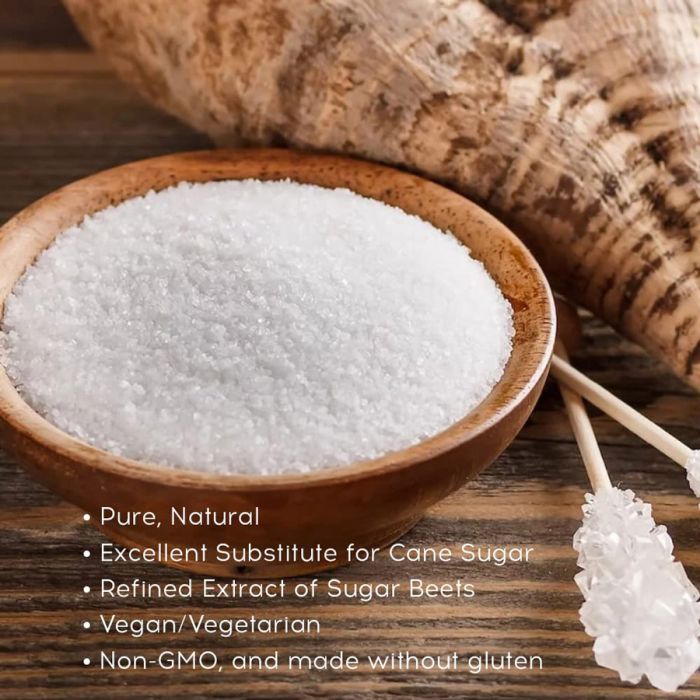Examining beet sugar vs cane sugar reveals distinctions in production costs and distribution.
Examining beet sugar vs cane sugar reveals distinctions in production costs and distribution.
Blog Article
Discovering the Distinctions in operation and Benefits In Between Beet Sugar Vs Cane Sugar
In the culinary globe, the choice between beet sugar and cane sugar is not just about sweet taste yet involves a nuanced factor to consider of taste, application, and impact. While both sugars stem from various plants, each goes through unique production procedures that discreetly influence their attributes and viability for various meals.
Beginnings and Manufacturing Procedures of Beet and Cane Sugar

Walking cane sugar, on the other hand, originates from the sugarcane plant, a tropical lawn indigenous to Southeast Asia today grown in exotic zones worldwide. The production of cane sugar begins with the harvesting of cane stalks, which are squashed to launch the juice. This juice is then boiled to concentrate it, after which it is rotated in centrifuges to create raw sugar crystals. These crystals are additional fine-tuned to create the white sugar generally available in stores.

Nutritional Content and Health Considerations

When contrasting the dietary material of beet sugar and cane sugar, it ends up being evident that both kinds basically give the very same caloric values, with about 16 calories per tsp and no significant nutrient variety. Both sugars, when eaten in excess, can contribute to raised blood sugar levels, a threat element for diabetes and various other metabolic conditions. From a wellness point of view, moderating intake of any type of sugar, whether from beet or cane, is recommended to stay clear of these potential negative impacts on wellness.
Taste Accounts and Culinary Applications
Despite their comparable chemical structures, beet sugar and cane sugar vary subtly in taste, which can influence their usage in various cooking contexts. Walking cane sugar commonly brings a tip of molasses, even in its polished kind, providing a warm, caramel-like touch that enhances baked items, coffee, and chocolate-based recipes. On the various other hand, beet sugar is characterized by its extremely refined, neutral preference, making it a flexible sugar that does not alter the taste profiles of meals.
Ecological Impact and Sustainability
While both beet and cane sugars are derived from plants, their environmental influences differ dramatically because of the distinctive methods of growing and handling required for every. Sugar beet farming typically entails substantial automation, which can enhance nonrenewable fuel source consumption and carbon discharges. Nonetheless, beets can be grown in cooler climates and call for much less irrigation, potentially minimizing water use compared to sugarcane. Sugarcane, on the other hand, is typically grown in tropical regions where it depends greatly on watering and a much longer growing duration, increasing its water footprint.
Moreover, the handling of sugarcane often generates a significant quantity of waste, consisting of bagasse, which, although functional as biofuel, often adds to air pollution if burned inefficiently. Sugar beet processing makes use of even more of the raw products, leading to less waste. Both industries encounter obstacles in lowering their environmental footprints, yet recurring innovations in farming methods and waste administration are aiming to boost sustainability.
Economic Variables Influencing the Sugar Sector
The economic characteristics of the sugar market are significantly influenced by international market demands and profession policies. Aspects such as tolls, look at this website subsidies, and global trade contracts play essential duties in shaping the competitive landscape. In areas where sugarcane or sugar beet production is subsidized, producers may have an economic advantage that allows them to offer reduced prices on the international market. This can create differences in earnings and market accessibility for more info here manufacturers in nations without such subsidies.
Furthermore, changes in international need for sugar, affected by nutritional fads and commercial usage in foodstuff, straight influence rates and manufacturing levels. beet sugar vs cane sugar. Climate condition additionally play a crucial duty, as they can significantly affect plant returns and, subsequently, the supply chain. This irregularity introduces a level of economic uncertainty that can result in investment volatility in sugar production fields, affecting choices from planting to market technique
Conclusion
In verdict, both beet and cane sugar have distinct qualities that suit various cooking demands. top article While cane sugar conveys an abundant flavor perfect for enhancing baked items, beet sugar's neutrality is excellent for lighter meals.
Report this page